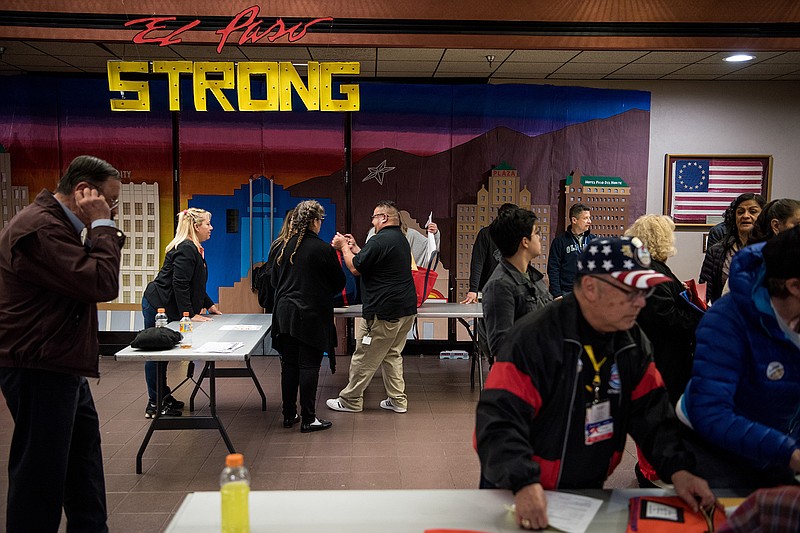AUSTIN - A federal judge in San Antonio dismissed a lawsuit seeking greater accommodations for voter safety during the coronavirus pandemic.
The lawsuit, filed by civil rights groups and two voters, sought a court order requiring face masks at polls and other changes to alleviate crowding, including more polling locations, additional voting machines and an extra week of early voting on top of the six additional days already ordered by Gov. Greg Abbott.
The lawsuit also sought approval for temporary early voting locations with flexible hours, which a new state law bans.
Although the requests "do not appear unreasonable and can easily be implemented" to improve safety, U.S. District Judge Jason Pulliam said the courts lack authority to order the changes.
The power to administer elections and set voting procedures belongs to the Legislature and state agencies, Pulliam wrote in an order signed Monday and released Tuesday.
"Any directive would also require an initial policy determination outside of judicial discretion and require an undertaking that would inherently demonstrate a lack of respect due the legislative branch," Pulliam wrote.
"In doing so, this Court would override any policy decisions to micromanage Texas's election process," he added.
Pulliam was nominated by President Donald Trump last year and took the bench in August.
The lawsuit by the Texas chapter of the NAACP and Mi Familia Vota argued that unsafe conditions at polling sites threatened to disenfranchise voters, particularly Blacks, Latinos and Native Americans who are disproportionately harmed by the pandemic.
Unless the increased health risks are addressed, voters will be forced out of the political process, the lawsuit argued.
Pulliam noted that the lawsuit did not challenge the constitutionality of a state law or election policy. Instead, it raised a general challenge to procedures that is not within the court's power to address, he said.
Texas Attorney General Ken Paxton praised the ruling.
"Law established by the Legislature must be followed consistently," Paxton said in a written statement. "Upending the procedures established by state and local leaders would have sown chaos and threatened to disenfranchise lawful voters."

